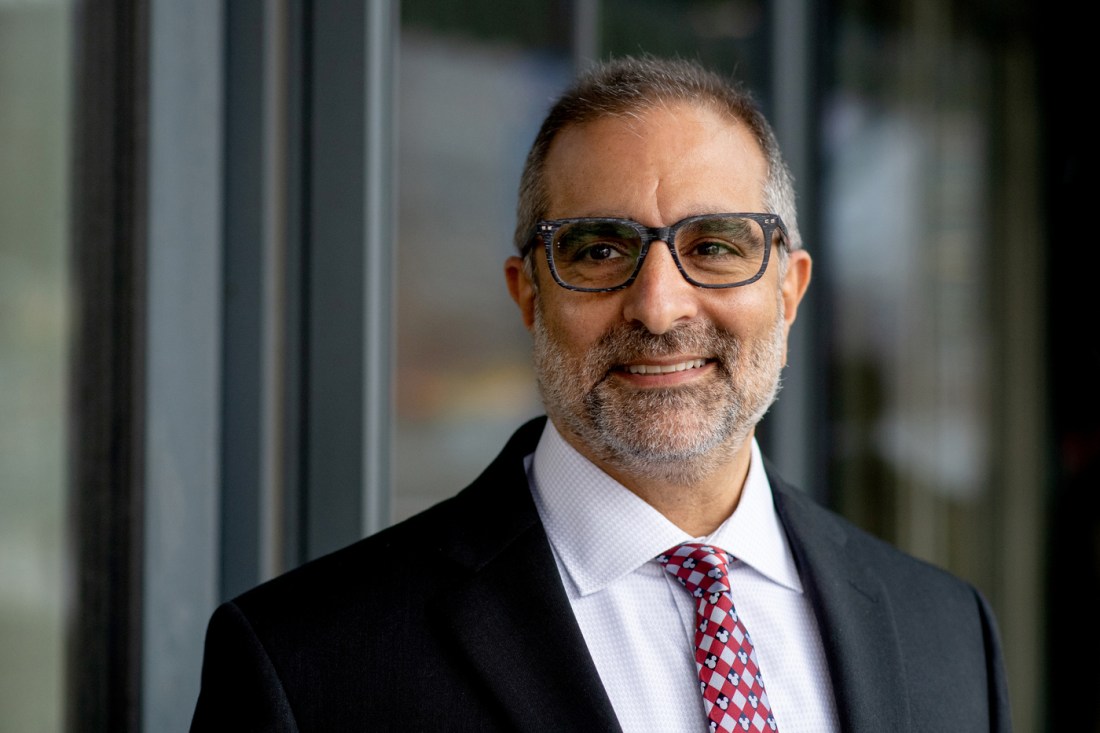Gregory Abowd, dean of College of Engineering, elected to the American Academy of Arts and Sciences
Abowd joins a growing list of Northeastern faculty who’ve been elected to the academy.

Gregory D. Abowd, dean of Northeastern’s College of Engineering, has accumulated an impressive list of honors over the course of his professional career.
He can now add one more: member of the American Academy of Arts and Sciences.
“It’s a huge honor,” Abowd tells Northeastern Global News. “It’s not something I expected, so I’m very pleased.”
The American Academy of Arts and Sciences — often called just “the Academy” — is one of the oldest and most prestigious learned organizations in the U.S. Founded in 1780 by the Massachusetts legislature, it helps “to cultivate every art and science which may tend to advance the interest, honor, dignity and happiness of a free, independent and virtuous people,” according to its charter.
“I think it’ll open up doors and connections,” Abowd says.
Abowd joins a growing list of Northeastern faculty who’ve been elected to the academy.
Elizabeth Mynatt, dean of the Khoury College of Computer Sciences, and Eduardo Sontag, university distinguished professor in the College of Engineering, were elected to the academy last year. Other Northeastern-affiliated members include Lisa Feldman Barrett, Herbert Levine, Judith Tick and President Joseph E. Aoun.
“We now have a community of people at Northeastern who are members of the Academy,” Abowd says. “I think now we can represent Northeastern’s perspective at a national level.”
Editor’s Picks
Before joining Northeastern in 2021, Abowd was a former professor and endowed chair in the School of Interactive Computing at Georgia Tech. While there, his research focused on “ubiquitous computing,” a term that dates to the 1980s referring to the growth of computing beyond the desktop.
Abowd’s work focused on the “inventions and application” of ubiquitous computing technologies, or how what was then a potential “off-the-desktop form of computing” could be “meaningful in everyday life.”
Specifically, Abowd has been interested in the social impacts of computing as it rapidly expanded into the classroom, the household and the health care industry. His work in the classroom focused on harnessing emerging technologies to provide students and teachers with a more seamless augmented learning experience.
That effort led him to work on a foundational project called “Classroom 2000,” which sought to study how best to integrate emerging computing capabilities into classroom instruction. In 1998, he founded the “Aware Home Research Initiative,” leveraging technology to help create a home environment “that can both perceive and assist its occupants.”
More recently, Abowd has been at work on “sustainable electronics,” a field that looks at how to make computing more environmentally friendly.
“Our appetite for computing shows no signs of abating,” he says. “But the way we manufacture and dispose of all things electronic threatens the planet. And if we’re not going to quell our thirst for more and more computation, we need to start rethinking the way we understand the life cycle implications of all things computational on the environment.”
Part of that work, he says, is rethinking soldering methods, or how electronic devices are connected to circuit boards. Abowd says he and a postdoctoral researcher have come up with an alternative method — through so-called thermoforming — to reuse electronic components.
In collaboration with colleagues at the University of Washington, Abowd says he’s also developing a way for consumers to assess the environmental impact of different computational products. Much like a nutritional label provides a point of comparison for different food products, the goal is to empower consumers to make environmentally friendly decisions about computational products.
“We’ve never been able to do something like this in real time, while consumers are on the cusp of decisions about different products,” Abowd says. “It’s opening up a whole new opportunity to influence consumer behavior from a sustainability perspective.”
In 2023, Abowd won a “Lifetime Research Award” from the Association for Computing Machinery’s Special Interest Group for Computer-Human Interaction. Now a member of the American Academy of Arts and Sciences, he has the opportunity to give back to his colleagues and the wider academic community.
“It puts me in a position to nominate and reward other individuals for this same society,” Abowd says. “To me, that’s a wonderful responsibility because there are many people whose accomplishments dwarf my own — and now I am in a position to give them the kind of recognition others have given me.”





